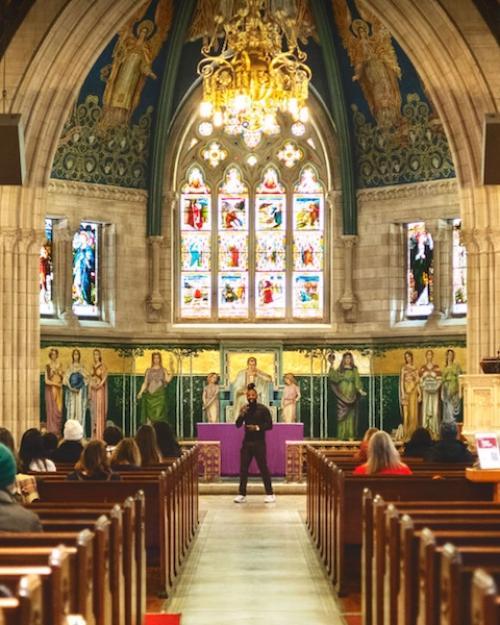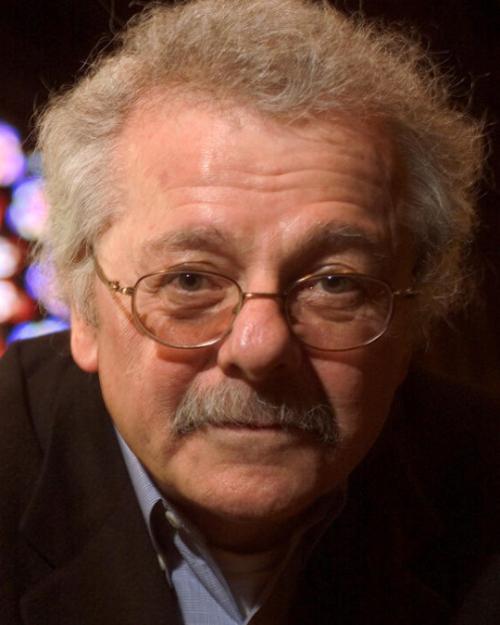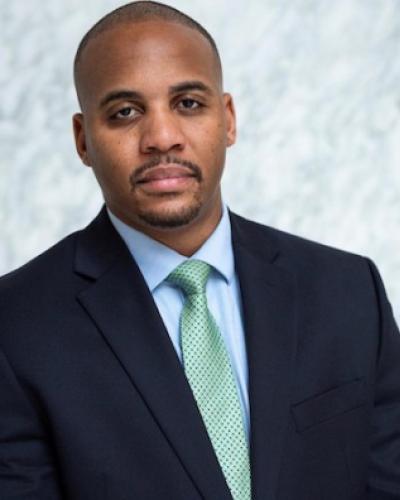Every year, Cornell sends off a group of academically and personally motivated leaders to pursue their passions in a diverse array of fields from government to medicine to fashion. Whether they are in Ithaca or thousands of miles away, as the saying goes: once a Cornellian, always a Cornellian. This spotlight series offers a glimpse into the lives of alumni from Cornell’s American Studies Program. Our next feature is class of 2009 Ernie Jolly. Jolly double majored in American Studies and Africana Studies; served as an residential advisor in Clara Dickson/McLLU; and participated in Black Students United, Campus Life, Alpha Phi Alpha (fraternity), and Quill & Dagger Senior Honor Society. He is now Chief of Staff to Queens, NY Congressman Gregory W. Meeks, who is Chairman of the House Foreign Affairs Committee and a senior member on the House Financial Services Committee.
1. What was your favorite course in the program?
My favorite course offered through the American Studies Program at Cornell University was Black Religious Traditions taught by Professor Margaret Washington. I grew up attending a black church of mostly Afro-Caribbean immigrants in Brooklyn, NY. However, before taking this course at Cornell, I thought little about how African indigenous practices, the legacy of black resistance during the Atlantic slave trade, and black political thought influenced how we worshipped as a church, how we engaged our local community, and how we viewed ourselves within the larger African diaspora. That changed with this course; although a niche topic, the course broadened my perspective of how one can leverage history to make better sense of the world around them.
2. What is your fondest memory of the program?
My fondest memory of the American Studies Program is its diverse Professors who were passionate about examining American history through often underutilized lenses. Whether it was exploring the Asian-American experience, or examining American society through the eyes of James Baldwin, the American Studies Program provided ample opportunity for students to reflect on the founding and development of this nation with a critical eye.
3. How are you utilizing the skills you learned in the AMST program in your daily life?
I credit Cornell’s American Studies Program for providing me a better understanding of how and why our political institutions were structured the way they were; the program gave me a deep appreciation for examining political issues through their historical contexts; but most importantly, the program helped me develop my analytical and writing skills, both of which are valued tremendously in the halls of Congress.
4. Are you currently at a place you envisioned yourself being in while in college?
Yes, I am currently where I envisioned myself being professionally. During two of my summers as a Cornell student, I interned in Washington DC at the Department of Labor and in Congress. Those opportunities, coupled with my on-campus experiences at Cornell, made me aspire then to do much of the work that I do today.
5. What's one piece of advice you have for current Cornellians?
Remain open minded about the various career paths that are available to you. While I was always interested in politics and policy—fields I work in today—it wasn’t until after Cornell, during law school, when I realized my specific interests in tax and banking policy and narrowed my focus accordingly. Though I was steadfast in pursuing the career in politics and policy, I balanced that steadfastness with a healthy amount of flexibility and openness to new disciplines and ideas. All in all, things came together in ways that I could not fully map out as an undergraduate student and I am glad I kept my intellectual door open.





